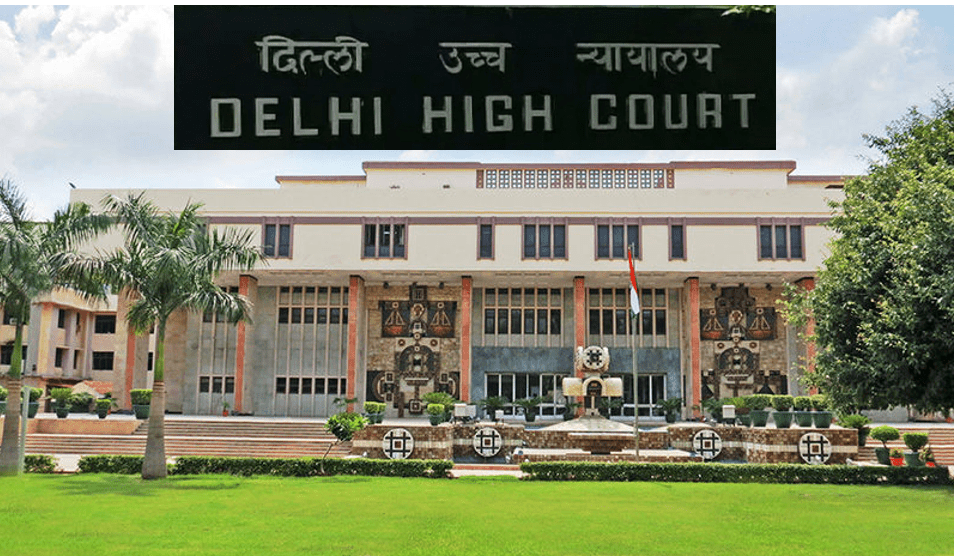
The ‘compounding charge’ paid for compounding an offence under a statute, according to the Delhi High Court, is neither a tax or levy. The court noted that a person deposits the compounding fee in order to avoid the start of coercive procedures against him and to receive closure. Therefore, it is not always necessary to interpret the payment of the compounding fee as an admission of guilt or a breach of a statutory obligation.
When hearing a petition brought by the oil marketing firms Indian Oil Corporation Ltd (IOCL), Hindustan Petroleum Corporation Ltd (HPCL), and Bharat Petroleum Corporation Ltd (BPCL), the bench of Justices Yashwant Varma and Dharmesh Sharma made the observation. The Single Judge’s ruling, which denied them a refund of the compounding charge they paid under Section 48 of the Legal Metrology Act, 2009 for compounding the Act’s offences, was contested by the appellant corporations.
The court stated that the Legal Metrology Department was required to reimburse the compounding charge paid by the appellant companies once the Single Judge determined that they had not broken any provisions of the 2009 Act.
The bench ruled that because the department is the “STATE,” it is not permitted to keep funds that are otherwise not due under the 2009 Act. It was further stated that the appellant companies’ inability to object or protest the deposit of the compounding charge did not allow for its retention.
Certain fuel dispensing machines were imported by the appellants, IOCL, HPCL, and BPCL, for use in dispensing fuel at various outlets. The aforementioned units were brought in without being registered in accordance with Section 19 of the Legal Metrology Act.
According to the Legal Metrology Department, the appellant companies must register themselves with the Act in accordance with Section 19. Thus, the Department wrote letters to the corporations urging them to register with the Act. Additionally, the Department seized certain dispensing units (“DUs”) used by the appellants for violating the Act’s rules. The Department claimed that the appellants’ use of models did not comply with Section 22 of the Act. Later, the Appellant Companies reached a settlement with the Department and paid a compounding fee of Rs. 2.04 crores for the compounding of Act-related offences in relation to its retail locations. After that, IOCL, BPCL, and HPCL submitted a writ suit to the Delhi High Court asking for the compounding fees and interest to be refunded. The entities making the appeal argued that they are not “dealers” or “manufacturers” as defined by the Act. They argued that they cannot be forced to register as an importer under Section 19 of the Act because they do not deal in DUs and only imported them for their own use.
The Single Judge determined that the companies were neither makers nor dealers of weights or measures under the 2009 Act when considering whether the appellant companies were required to obtain registration under Section 19 of the Act. The Single Judge determined that the appellants were not required to register themselves under the Act prior to enacting the
import of the DUs after noting that the DUs were imported by the appellants for their own use.
According to the Delhi High Court’s decision in favour of Oil Marketing Companies, the compounding fee they pay is neither a tax or other obligation. The corporations were determined not to have broken any provisions of the 2009 Act, thus the court upheld the appeal against the Single Judge’s ruling and ruled that they are not liable for paying the compounding fees. The compounding fee is essentially a deposit paid to avoid coercive proceedings, the court emphasised, and it is neither an admission of guilt or a violation. The Department has been told to pay IOCL, HPCL, and BPCL back for the compounding fees they paid as a result.
LIVE LAW
https://www.livelaw.in/law-firms/compounding-fee-delhi-high-court-legal-metrology department-oil-marketing-companies-234479 (last visited on 07-08-2023)
Written by- Kameshwari Gaur College name- Mahatma Jyotiba Phule Rohilkhand, University Semester- 5th semester (3-year Ll.b. programme)




0 Comments